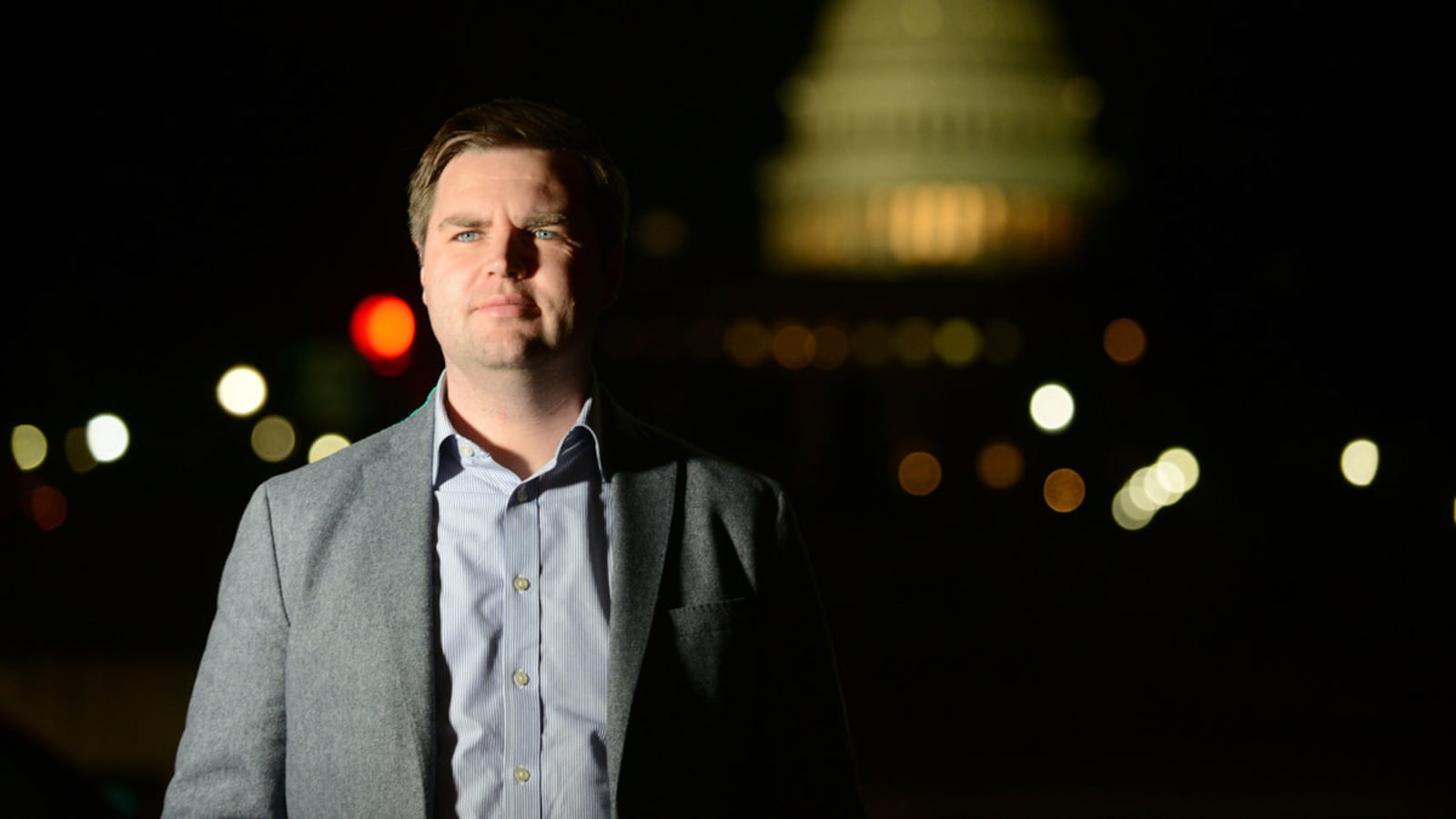In a local news interview published Wednesday, author and venture capitalist turned Senate candidate J.D. Vance suggested he would support prohibiting abortion even in cases of rape and incest—and dismissed those catalysts as “inconvenient.”
Asked by Curtis Jackson of Spectrum News 1 in Columbus, OH, whether a woman should be forced to give birth even if the pregnancy was the result of incest or rape, Vance replied that “the question betrays a certain presumption that’s wrong.”
“It’s not whether a woman should be forced to bring a child to term; it’s whether a child should be allowed to live, even though the circumstances of that child’s birth are somehow inconvenient or a problem to the society,” said Vance, who lags behind several Republican candidates in his Ohio primary. “The question to me is really about the baby. We want women to have opportunities, we want women to have choices, but, above all, we want women and young boys in the womb to have a right to life.”
The exchange came amid an extended discussion about abortion laws in light of the broadly criticized new Texas ban on the procedure, which does not make exceptions for rape and incest. Vance, a multimillionaire investor whose 2016 bestseller, Hillbilly Elegy, detailed the plight of Appalachia’s poor, defended the ban, saying that “in Texas they’re trying to make it easier for babies to be born.”
He also claimed, falsely, that “the Supreme Court has upheld the Texas law,” referring to the Court’s eleventh-hour split decision last month to let the ban go into effect rather than issue an emergency injunction. Vance, a Yale Law grad, also stated that “the fundamental problem with abortion law in this country” is that it is “unsustainable and unstable.” Roe v. Wade, the Supreme Court ruling which defined those laws, was decided 48 years ago.
Legislators in Ohio, a nominal swing state which has in recent election cycles shaded more deeply red, have passed increasingly restrictive abortion laws over the past decade. Those efforts include a 2019 bill that would have banned abortion after six weeks, which was stayed by a federal judge. The state’s current laws ban abortions after 20 weeks, and only make exceptions for severe risks to the mother’s health, according to the Guttmacher Institute.
Vance campaign press secretary Taylor Van Kirk provided a statement claiming Vance did not say rape and incest were “inconvenient” circumstances.
“Nowhere in the interview cited does JD actually say what the Daily Beast is dishonestly claiming he said. The transcript of the interview bears this out as that phrase is never uttered and JD even rejects the entire premise of the question he was asked by the interviewer,” the statement said. “The Daily Beast’s pathetic attempt to put words in his mouth show that they’ve traded in any semblance of journalistic integrity to be full on leftwing political activists.” (A recording of the interview can be heard here.)
Vance, who has taken heat for pandering to the MAGA base after previously bashing ex-President Donald Trump’s character and ideology, has over the last several months styled himself an ultra-conservative heir to Trumpism as his crowded primary races to appease the far right.
His top opponents, former Republican state party chair Jane Timken and former state Treasurer Josh Mandel, have espoused support for a range of restrictions on a woman’s right to choose, with both of them backing the state’s 2019 law. Mandel has long opposed abortions in cases of rape and incest.
After the Texas law went into effect, Timken signed on to an effort to block President Joe Biden from “packing” the Supreme Court. Mandel has not yet publicly weighed in on the ban, but Vance has taken to Twitter several times to stake out his support, claiming at one point that abortion was the first political issue he cared about.
Asked in the interview on Wednesday about his pro-Trump hypocrisy, Vance defended his professed change of heart by invoking his approval of the former president’s policies. “It’s not about rhetoric, it’s not about what somebody says or doesn’t say; it’s about what they do,” he said.







